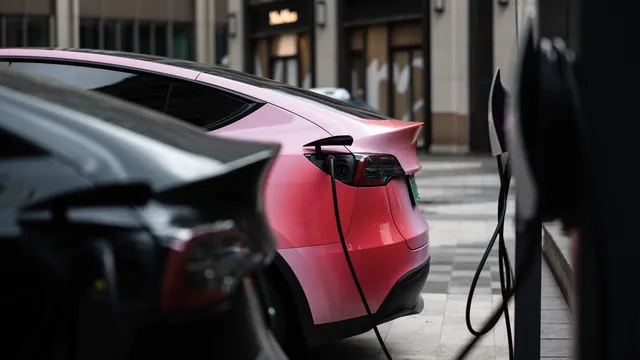A record number of electric vehicles were registered in Western Europe between April and June as more affordable battery-powered cars came onto the market, a new study shows.
Nearly 600,000 battery electric vehicles (BEVs) hit the road in the last quarter, leading to a surge in sales that had been growing more slowly than previous forecasts last year, The Guardian reported.
The record uptake, which is likely to be surpassed in the current quarter, is due to the arrival of more affordable BEVs on the market and accelerating sales in southern Europe, said Matthias Schmid, an automotive analyst in Berlin.
"Electric cars are becoming more affordable and attractive to private consumers for the first time. Previously, they were only intended for corporate consumers, company car drivers," Schmidt said.
Although electric cars are much cheaper to maintain than their gasoline equivalents, they are often offered at a higher price. However, the emergence of smaller and cheaper models is seen as an important step in convincing lower-income buyers to switch from fossil fuel-powered cars.
European carmakers, like Stellantis, which owns Citroën, and Renault, have started bringing out more affordable models to attract potential buyers who are price-sensitive and to lower the average emissions of their cars in line with EU regulations.
The ongoing rollout of the charging network across Europe is also helping to alleviate some potential owners' range anxiety: this is the term used to describe drivers' concerns about whether they will be able to find a charging station during their journey.
As a result, quarterly sales in Western Europe are forecast to exceed 600,000 for the first time between July and September, partly thanks to the launch of new registration numbers in the UK in September, which traditionally boosts sales.
Sales of electric vehicles manufactured in China are also growing across Europe, particularly those produced by BYD, which is competing with Elon Musk's Tesla for the title of the world's largest electric vehicle manufacturer and is focusing on sales in the UK, Spain, and Italy.
A quarter of BYD cars shipped to Europe end up on British roads, Schmid said. The EU introduced tariffs of up to 35% on electric vehicles manufactured in China at the end of 2024, following a year-long investigation into subsidies, which was not followed by the UK. Currently, one in 10 electric vehicles on European roads is manufactured in China.
In the final months of the year, the reinstatement of the social leasing scheme in France, combined with the reintroduction of the electric vehicle subsidy scheme by the UK government – which will reduce the price of some electric vehicles by up to £3,750 – is also expected to boost sales.
In the UK, however, a discount of up to 10% will only be available for the "greenest" cars and those priced below £37,000. This means that neither Tesla cars – which start at around £40,000 – nor Chinese cars from manufacturers such as BYD will be eligible. | BGNES

 Breaking news
Breaking news
 Europe
Europe
 Bulgaria
Bulgaria







